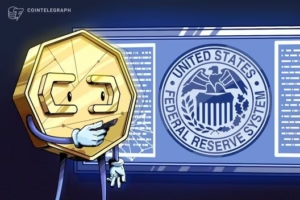In recent discussions surrounding the potential for a US Strategic Bitcoin Reserve, it’s essential to clarify a fundamental point: the United States already possesses more Bitcoin than any other government worldwide. Despite this fact, a significant wave of fear of missing out (FOMO) is being generated, particularly by industry lobbyists across various platforms.
Notable figures in the crypto space, such as BTC Inc CEO David Bailey, advocate for an Executive Order that could solidify these reserves, claiming it should be prioritized on the very first day of a new administration. Meanwhile, Dennis Porter from the Satoshi Action Fund has been rallying state-level initiatives, proposing that states should act to acquire Bitcoin before the federal government can, declaring it a form of patriotic duty. However, one must critically assess whether this approach is grounded in practicality.
While the concept of a Strategic Bitcoin Reserve is indeed appealing, fostering a long-term vision for the stability of the dollar amidst the potential loss of its global reserve status is more complex than merely accumulating Bitcoin. The stark reality is that no other governments are currently making significant moves to acquire Bitcoin, and the next largest national holder, China, has officially restricted its use.
Countries like Bhutan and El Salvador have made headlines by holding Bitcoin, but their reserves pale in comparison to the vast amount already owned by the US government. Bhutan, for instance, holds approximately 10,000 BTC, while El Salvador’s holdings hover around 6,000 BTC. Given the scale and operational agility of the US government, any further purchases by these nations are highly unlikely.
It’s crucial to consider that even without active purchasing, the US’s existing Bitcoin stockpile gives it substantial leverage. While some might argue that purchasing more Bitcoin is essential to send a clear message of leadership in the global market, there are alternative means of demonstrating this without exerting unnecessary political capital or incurring costs.
Furthermore, in the current climate, does establishing a Strategic Reserve take precedence over implementing regulations that could eliminate barriers within the industry? Real enhancements to Bitcoin’s adoption could be achieved by pushing for sensible regulations, encouraging businesses to expand their use of cryptocurrency.
One can’t overlook the burden of existing tax laws that discourage Bitcoin utilization for everyday transactions. Hence, it’s vital that advocates of a Strategic Bitcoin Reserve do not overstate their case. The primary objective should be to ensure that the US government does not liquidate its existing holdings while advocating for more strategic and impactful measures that promote Bitcoin’s growth.
The buyer’s market is undeniable, and while having the US government invest in Bitcoin could yield substantial industry support, the broader focus should be on spreading the adoption of Bitcoin, rather than solely inflating individual holdings. By promoting policies that empower users and businesses alike, the US can lead the way into a more integrated cryptocurrency future.
This examination highlights the necessity of distinguishing between strategic accumulation and realistic regulatory advancements in the rapidly evolving Bitcoin landscape.



